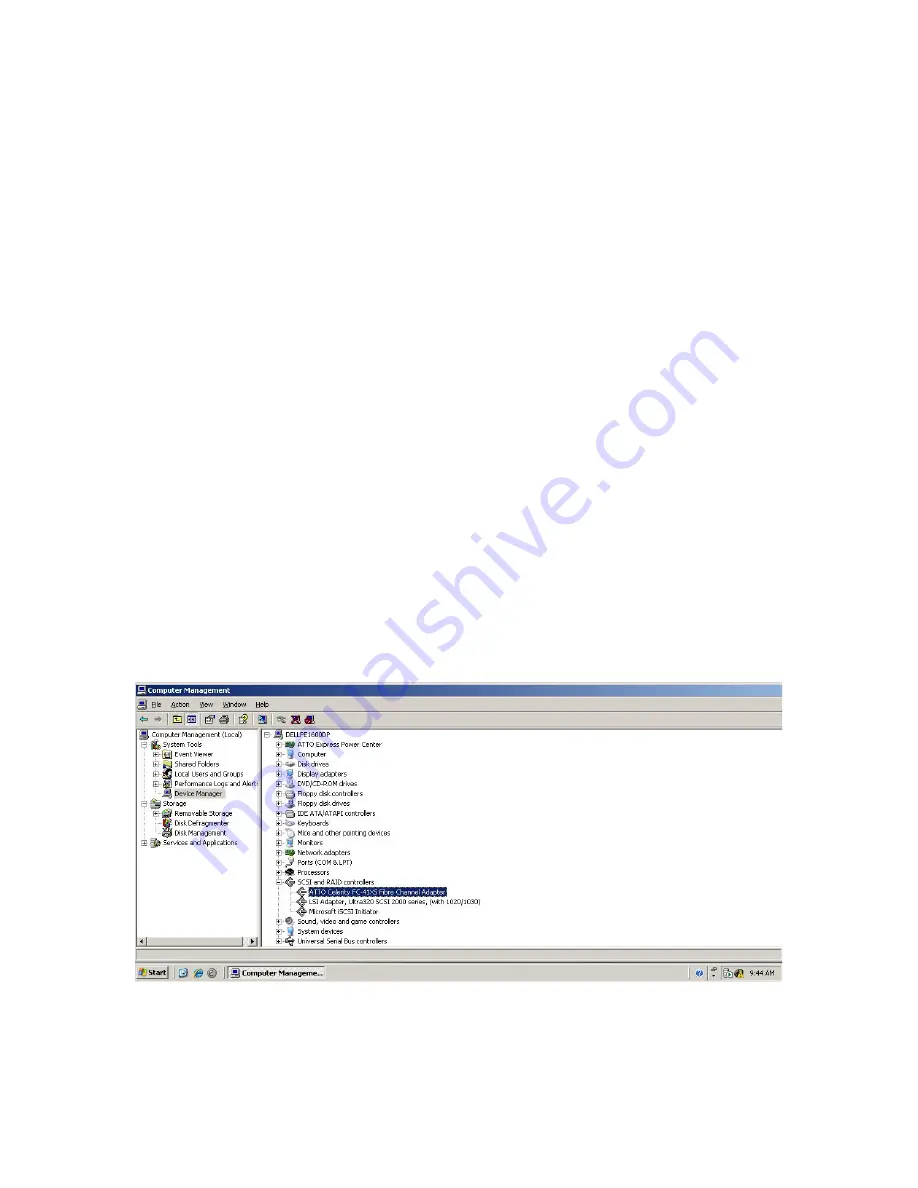
although connected with two links to the device, this is most likely a MPIO or
Multipathing issue. Please contact Technical Support for further a resolution.
Swap the devices, cables and SFP from the Fibre port that appears to be
working with the one having issues. If the issue follows the Fibre port, verify the
NVRAM settings are the same for both channels (connection mode and data
rate). If this does not resolve the problem, replace the Fibre card.
If the issue follows the attached Fibre devices, troubleshoot the attached
devices:
Verify the Fibre devices are powered on.
Check cable integrity. Check the cables for solid connections. Make sure they
snap into place. Inspect cable for kinks or cuts.
Verify the SFP is not damaged and rated for the Data Rate trying to be achieved.
Also, try reseating the SFP. If this does not work, try replacing the SFP with a
new one.
If multiple Fibre Devices are being attached (switch, multiple Drive Arrays) try
connecting one device at a time, adding devices until the problem occurs. This
will help pinpoint the device or cable causing the problem.
Watch the LED indicators on the Fibre card. They should show when you have a
proper link and the connection speed you have negotiated with the device after
startup. Drive lights should also flash at startup as the Fibre port is scanned.
This may give a clue as to the root cause of the issue.
Æ
The Celerity host adapter is detected during the system’s BIOS scan but it is not
detected by the operating system.
Note: When working properly, the Celerity host adapter will show up in the
device manager.
The host adapter driver may not be properly installed. Please refer to the host
adapter Installation and Operations manual for instructions on installing your OS
driver.
Page 4 of 9
Atto Technology, Inc.
April 9,2007



























